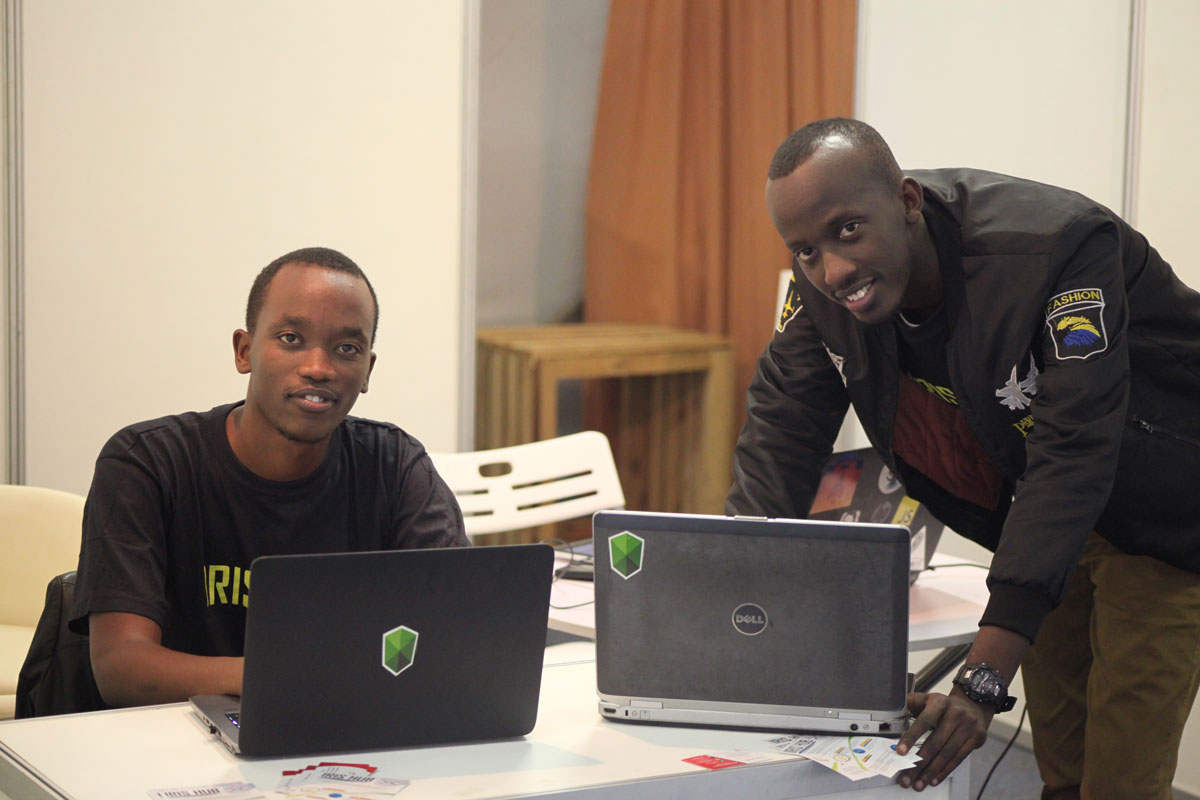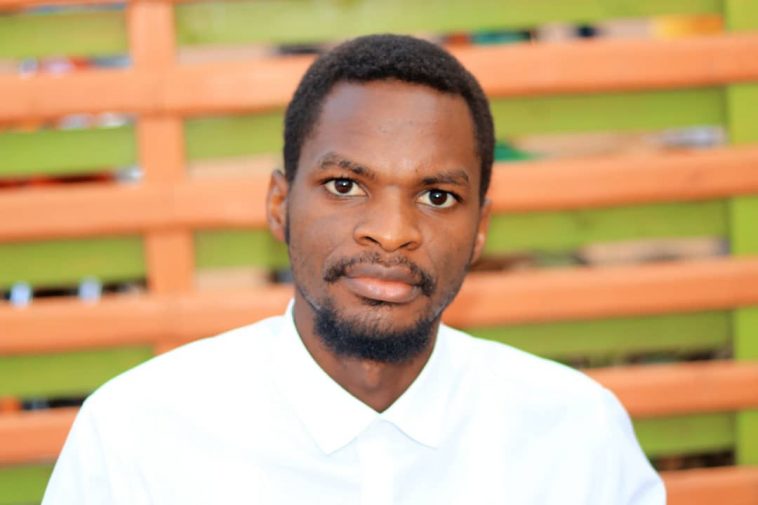Let’s continue on our series to explore African’s vibrant startup hubs, and this week, let’s go to Rwanda, and meet with Benjamin, the founder of the Iris Hub.
Hi Benjamin, thanks for sharing your journey with us on TechInAfrica.com and telling our readers more about Iris Hub. First of all, can you introduce yourself, who you are, where you are from and what is your background?
Am Benjamin Manirafasha, Iris Hub CEO, born in Rwanda and happy to be Rwandan. Am doing Master in Digital Business and I do have a Bachelor in Information Technology.
My journey started in 2013 when I was taking technology trainings, learning how to code at HeHe Labs currently is DMM.HeHe . My intention at the first time wasn’t creating Iris Hub, it was a magazine and I called it Iris Magazine and we failed may times with my team and we took a pause to start a new company which provided technology software such as website and mobile application to clients.
About Iris Magazine so far, we have 10 issues focusing on innovations, creativity, opportunities in youths and their business. Many entrepreneurs point to mistakes as being their best teacher. When you learn from your mistakes, you move closer to success — even though you initially failed.
And am happy to play my role and being part of the ecosystem player as mentor, speaker and trainer in the startup ecosystem.
Thanks Benjamin, can you tell us more what brought you to create Iris Hub?
Iris Hub itself was born after a thorough research on the levels and causes of unemployment in Rwanda which stood 13.2% overall and 18% for graduates that time. Rwanda is facing an escalating problem of high unemployment and dissatisfaction from educated youth to find job opportunities.
Lack of a working and sustainable student-business relationship is creating a major limitation for the students to get meaningful employment, even after undergoing the mandatory internship. At Iris Hub, we believe that the Rwandan ecosystem is lacking an effective platform where the university students can connect to potential employers and be a part of building the future of Rwanda….Before they graduate!
During the period of time, I visited a hub and incubator for entrepreneurs that time it was only KLab and Impact hub which i found very interesting. As a result, I was inspired to use the same idea. As I mentioned at first, I didn’t execute it right away since i was lacking capital, mentorships and Materials.
Realising that all i had was technology skills, I then decided to take to do it as technology company which develop and sell technology solution until I got the experience, networks and mentors.
Iris Hub is now Rwandan’s leading entrepreneurship Support organisation. We unify and strengthen the Rwandan entrepreneurship ecosystem by promoting an inclusive entrepreneurial culture. Iris Hub helps create the necessary conditions needed for every entrepreneur to succeed and we proudly as a inspiration for entrepreneurs and investment. Through our flagship events, digital programs, and policy, mentorship and advocacy efforts, Iris Hub: Gives a voice to every entrepreneur; Creates, connects and supports vibrant startup communities; Celebrates the stories of entrepreneurs to fuel a culture of entrepreneurship; and Iris Hub as an inspiration of entrepreneurship locally and globally. We are a network based on shared values, driven to leverage what resources already exist in the entrepreneurial ecosystem; always accountable and adapting to the needs and priorities of every entrepreneur. As member of Africa-Europe Innovation Partnership, AfriLabs, ESOs Rwanda and SDSN – Youth.
What has been the challenges to bring Iris Hub to life?
The challenges are many just like any entrepreneurs. But I will list three. The challenge I faced
the most was high taxes which was hurting and continues hurting the startup ecosystem, also lack of funding for R&D and investment funds. Finally, there was a lack of inclusive economy when it comes to collaboration and innovative mindset among large corporations (banks, telecoms…). Most big company do not have a department for innovation, they do not work with startups, small companies tend to stay small, and large corporation stay large. Until today this continue to be a biggest challenge.
Can you tell us more about the startup and tech ecosystem in Rwanda?
I believe Rwanda is the best place to pilot new tech, it is a small market, low corruption, easy to
setup a business and most of all now, Rwanda have build the largest conference center in East Africa that attract people from all over the world and it is the best place to network. Rwanda is the best startups environment.
It is hard to find investors anywhere, all of our investment came from Europe and USA, yet we developing a solution for the African continent. The challenge is local investors are not interested in startup technology companies since it is still early stage and risky, most investment goes to infrastructure and big projects. And foreign investors still find Africa too risky, the fundamental problem that we startup have is there is no path to an exit for most African startup, so investors feel they will never get their investment back. Going public is not an option since the market is not well developed, and merger and acquisition is nonexistent. And we all know, most tech companies take a long time to monetise, therefore investors shy away. And until we strengthen the exit strategy ecosystem the challenge will not go away.

Can you share with us some nice local startup stories that you love in Rwanda and from your
members?
In Iris Hub we do have startups which are doing incredible works on the market.
IT Devs and Nexin Ltd : Both are technology Software providing company. Which are good in Mobile and Website development and software consulting.
O’meal Ltd : Omeal Startup allows you to access a variety of services like Pre-ordering, Table booking, Real time update on Restaurants in Rwanda to make your dining enjoyable, and it is a web and mobile App.
WinSet Ltd : is a Rwandan company that offer real estate and related services operating in Rwanda with great mission to achieve more and their success is delivered from their client’s satisfaction as the main pillars to their business.
Mentale : Mentale is a mental health platform with the aim of empowering every human being to know and get familiar with their mental health status. It helps you to get mental health assistance from home or at workplace in case of emergency or in need, and helps you to track daily mood as well as getting mental health diagnosis either online or in-person by Mental health professionals.
And there are more upcoming startups with great sustainable solution ideas
How would you see Rwanda within the next years as a tech and startup ecosystem?
I am optimistic about the future, most leaders are talking about integration, more and more conferences across the continent are happening to support an inclusive economy on the continental level. But patience is key for us entrepreneurs, the changes are very slow therefore, we have to strength the private sector so we do not just wait for the public sectors to act.
Rwanda is fast developing economically, technologically, mentally, etc and there is a huge need for innovative products developed by different startups and entrepreneur. Our country is growing whether you admit it or not won’t change the fact. New companies are investing in different sectors because they see the potential that we citizens have. Our country is full of opportunities both for locals and foreigners.
What are your next milestones for the Iris Hub?
A technology hub and incubator for innovators and emerging entrepreneurs, the first of its kind
in Rwanda. As our business grow and expand. Our next milestones will be and hire and train a solid team.
Compared to your neighbouring countries, how do you think Rwandan startups and entrepreneurs can make a difference?
Rwandan entrepreneurs recognise that their knowledge of the needs of East Africans, which has many similarities with the needs of people throughout the developing world, gives them an opportunity to develop technology that can compete in the developing world with Western companies.
I believe neighbouring country can start learn from Rwanda because We identify people who are coming up with solutions concerning community issues, how the specific innovation is responding to the community problems and read to make money to develop themselves as well as our nation.
Any advice for future entrepreneurs?
Being a youth and student while having a career is not easy. However, planning everything is the key to have them all in balance even though sometimes you have to decide what you should put as your main priority. Despite the hardship, you need to manage your role as a students, youth, and young entrepreneur.
When you spend money on your business, be careful to spend it wisely. It’s easy to spend too much on foolish things and run out of capital too soon.
Being a successful entrepreneur takes a lot of work, a lot of vision and a lot of perseverance
No one succeeds in business alone, and those who try will lose to a great team every time. Build your own great team to bolster your success.
Thanks Benjamin!
More links to follow them:
www.irishub.rw
www.twitter.com/benjatick
www.twitter.com/IrisHub_Rw



